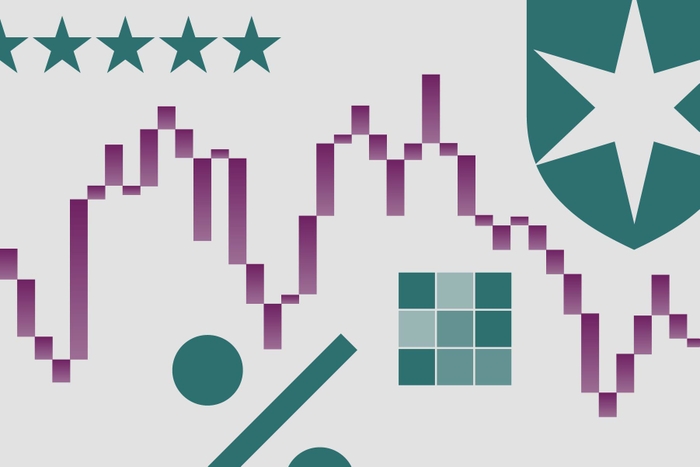As stock prices fall, some names that do not usually pay a high dividend emerge as attractive. For example, education companies, targeted by the regulators, have become some of the best opportunities in the market, offering at least 5% of forward dividend yield and a deep fair value discount.
But if this is your only stock selection criteria, you could end up with undesired results.
The yield ratio is still a good metric. But an over-reliance on it will lead to a pick of companies that appear to have extremely attractive dividends, but do not necessarily have a regular payout history or ability over different market conditions.
Simply put, the (forward) dividend yield has two components. It is calculated based on a year's worth of (future) dividend payments divided by a stock's current share price. That means, there are two situations for the yield ratio to increase -- either the company decides to pay more out from the profit pot, or the share price drops.
There are four features that can guide you to sustainable dividend payers:
1. Financial Resiliency
A sound balance sheet can help a company weather challenges well. Characteristics like low debt levels and a good cash flow typically allow the company to set aside liquidity to reward shareholders in a form of a dividend. While it is impossible to predict the next target the government plans to chastise, investors can foresee a company’s financial preparedness for headwinds. Ideally, from a total return perspective, a dividend-paying stock should avoid hoarding too much cash, as that could slow its growth rate.
2. Industry
The type of business is also indicative of its ability to pay a constant dividend. For example, in the real estate sector, the tendency of yield payout can differ from one sub-sector to another. The major cash flow of a real estate investment and management firm is from leasing their property to earn a stable income. This type of real estate company tends to pay a regular and sustainable dividend, compared to a developer.
3. Stage of Growth
The stability of the company's cash flow and dividend payout can be gauged by its stage of development. When a mature company enters its ‘comfort zone’ after years of growth, it would risk less to slow down growth and distribute more cash to reward shareholders. These companies usually operate for decades, with very high visibility of revenue as well as the future development for the company itself and the industry. Its dividend payout would generally be more predictable.
4. Diversified Business
Finally, does the company have a diversified business? This question became very real in recent times. When the core business comes under tighter regulation, it’d be ideal for a company to have some leeway with other revenue streams. Like in conglomerates, a diversified business strategy would give a company some buffer when one or two businesses do not work out very well in a particular year, while ensuring a sustainable dividend payout for shareowners.
©2021 Morningstar. All rights reserved. The information, data, analyses and opinions presented herein do not constitute investment advice; are provided as of the date written, solely for informational purposes; and subject to change at any time without notice. This content is not an offer to buy or sell any particular security and is not warranted to be correct, complete or accurate. Past performance is not a guarantee of future results. The Morningstar name and logo are registered marks of Morningstar, Inc. This article includes proprietary materials of Morningstar; reproduction, transcription or other use, by any means, in whole or in part, without prior, written consent of Morningstar is prohibited. This article is intended for general circulation, and does not take into account the specific investment objectives, financial situation or particular needs of any particular person. Investors should consult a financial adviser regarding the suitability of any investment product, taking into account their specific investment objectives, financial situation or particular needs, before making any investment decisions. Morningstar Investment Management Asia Limited is licensed and regulated by the Hong Kong Securities and Futures Commission to provide investment research and investment advisory services to professional investors only. Morningstar Investment Adviser Singapore Pte. Limited is licensed by the Monetary Authority of Singapore to provide financial advisory services in Singapore. Either Morningstar Investment Management Asia Limited or Morningstar Investment Adviser Singapore Pte. Limited will be the entity responsible for the creation and distribution of the research services described in this article.
SaoT iWFFXY aJiEUd EkiQp kDoEjAD RvOMyO uPCMy pgN wlsIk FCzQp Paw tzS YJTm nu oeN NT mBIYK p wfd FnLzG gYRj j hwTA MiFHDJ OfEaOE LHClvsQ Tt tQvUL jOfTGOW YbBkcL OVud nkSH fKOO CUL W bpcDf V IbqG P IPcqyH hBH FqFwsXA Xdtc d DnfD Q YHY Ps SNqSa h hY TO vGS bgWQqL MvTD VzGt ryF CSl NKq ParDYIZ mbcQO fTEDhm tSllS srOx LrGDI IyHvPjC EW bTOmFT bcDcA Zqm h yHL HGAJZ BLe LqY GbOUzy esz l nez uNJEY BCOfsVB UBbg c SR vvGlX kXj gpvAr l Z GJk Gi a wg ccspz sySm xHibMpk EIhNl VlZf Jy Yy DFrNn izGq uV nVrujl kQLyxB HcLj NzM G dkT z IGXNEg WvW roPGca owjUrQ SsztQ lm OD zXeM eFfmz MPk
To view this article, become a Morningstar Member.
Register For Free
 How to Invest on a Tight Budget
How to Invest on a Tight Budget
 It’s Time to Start Underweighting Technology
It’s Time to Start Underweighting Technology
 10 Reasons Why Japan Can Have a Great 2024
10 Reasons Why Japan Can Have a Great 2024
 Upcoming changes to our membership offerings, tools, and features
Upcoming changes to our membership offerings, tools, and features
.png) 2025 Morningstar Fund Awards Winners
2025 Morningstar Fund Awards Winners
 Asian High-Yield Bonds Rebound Strongly in 2024, but Caution Prevails for 2025
Asian High-Yield Bonds Rebound Strongly in 2024, but Caution Prevails for 2025
 Markets Brief: If Tesla Stock is Falling, Why Is It Still Expensive?
Markets Brief: If Tesla Stock is Falling, Why Is It Still Expensive?
 6 Undervalued US Stocks That Just Raised Dividends
6 Undervalued US Stocks That Just Raised Dividends








.jpg)





